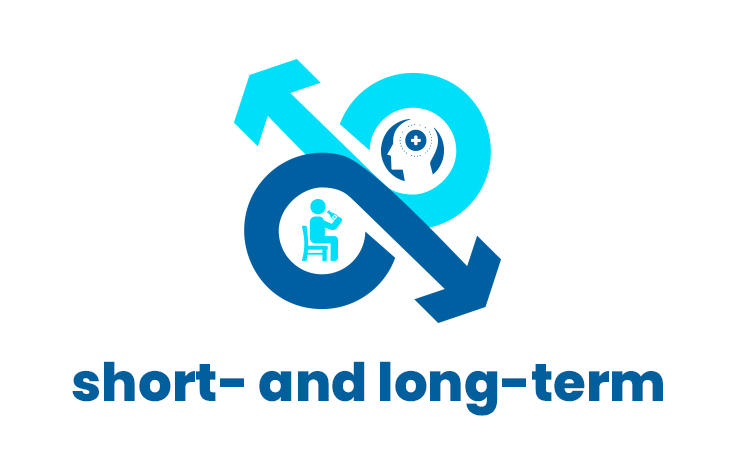It’s hard to break a habit; you must replace it with a good one. If you want to stop a practice without doing something good, your chance of failure is high.
Changing addictive habits is sometimes tricky as it takes time and effort. Our brain can’t differentiate between bad and good habits; they make patterns of the tasks that we do in our daily life routine and nothing more. Poor habits give us pleasure without effort, and our mind loves pleasure. That’s why we often do bad things to get pleasure.
Scientists often agree that the things that give us maximum pleasure without effort are harmful to us. It is difficult to change bad habits like this instantly. It takes a long time and makes for a challenge.
Why you start a bad habit
We can start a bad habit because of stress or boredom or something that has gone wrong in our lives. When you feel bored, you create something wrong and do it because it gives you pleasure. Stopping bad habits alone and bored is quite difficult. So, to quit your bad habits with someone else is much easier. Search for someone with the same ill habits as yours and try improving with one another.
Why changing is good
Changing your habits can change your life; if you want to break your terrible habits and replace them with your good habits, this shows that you want to change your life completely. Bad habits and addictive behavior such as smoking and eating too much junk food, which we know that is bad for our health, can create several kinds of diseases. We must stop our worst habits like drug use and drinking, if we can, too.
You maybe have heard about the theory of the 21 days to change a habit. It is not about the time to change a pattern. Willpower gives you the strength to change your habit, but life itself can be changed within a thousand parts of a second. Success or failure is nothing but at the level of mind.
You can do this for your entire life to beat bad habits and aim for your good habits to maintain your lifestyle. Because your bad habits can build over the years, they can’t be gone in a few days or months. You have to keep trying and strive to improve your life.
Understanding the Loop of Habit Formation
Understanding the formation of habits means knowing the structure of the mind. Knowing this helps you to break free easily without doing much. How can the mind work and make new habits? It is a three-step procedure:
Cues
A cue gives you a trigger to do those things which provide you with pleasure. What thing gives you a trigger to do bad things? When you get a trigger, you follow your old routine and forget about your new habits. The following are some things that trigger old habits:
· Location = Where you make your bad choices
· Time = The actual time when you do them
· Emotions = The type of emotion which grabs your attention
· Others = Such as friends or a family member
· Last Action = Where you did it for the last time.
These are the things or places that give a person a trigger about their old habits, and the person does those things subconsciously. Because these things feed in their mind deeply, and when these things trigger them, they do it automatically.
Routines
Routine makes a habit concrete if it is good or not. A routine makes a habit stronger and stronger. The more you do that habit, the more it becomes powerful. When you make a routine, you can make your habits subconsciously at the level of your mind, and your body follows.
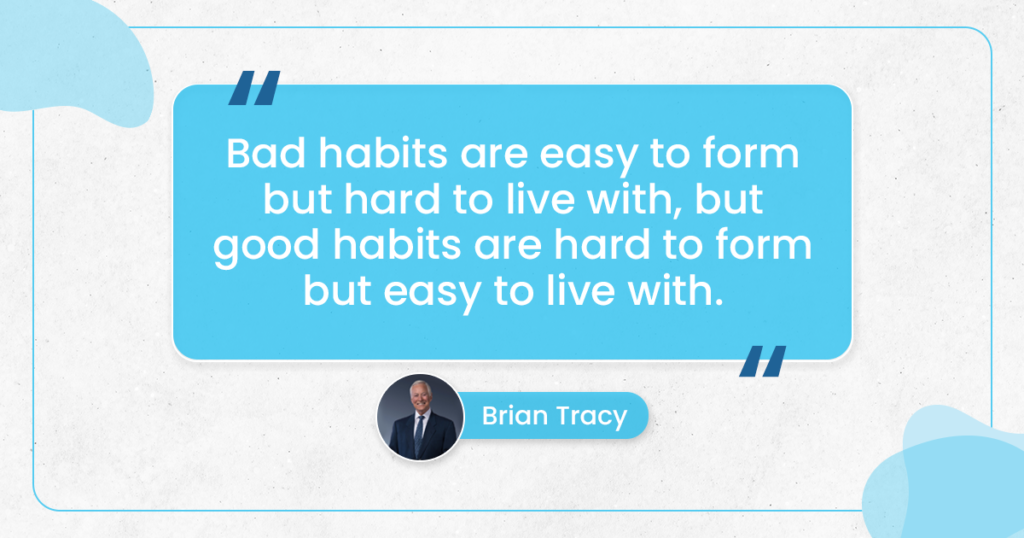
Rewards
This is a potent system while making or breaking a habit. The reward system is powerful in making habits. When you do something wrong or do addictive habits, you instantly feel pleasure. This pleasure (reward) kicks you to do this thing repeatedly.
When you smoke a chemical called nicotine, it arrives in your brain within 10 seconds. It drives to the brain and releases adrenaline, which starts a buzz of satisfaction. The buzz quickly fades down. Then you may feel tired, and you want that buzz again and again.
This reward encourages you to smoke again and again, and this cycle moves along. Your brain wants more hits of this chemical for pleasure.
We discuss this loop down below, how to change this loop, create a healthy lifestyle, and make a good habit using this same strategy. That’s what these 25 tips to replace bad habits with good ones are based on: the reward system. So, here’s how you change your life in 25 ways:
1. Tackle one habit at a time.
Start with one habit at a time. If you tackle more than one habit at a time, you are one step away from hitting failure.
Start with one bad habit, and give your 100 percent chance to change it. Many people want to change themselves and think they are strong enough to tackle many bad habits at once. And they fail poorly.
Starting with one addictive habit makes it easier and more comfortable to reassemble your life one step at a time.
2. Take baby steps.
Start with one and also start small. Make a goal, divide it into small pieces, and achieve one milestone at a time. A small step is always better. Take baby steps because it is easy for you to tackle bad habits this way.
Don’t think about the huge jump, take small steps or leaps. One day comes when you achieve your goal. But, keep it slow and simple. Keep that in mind: helathy progress is a marathon, not a sprint.
3. Do a “30-day Challenge.”
Do a “30-Day Challenge,” in which you can plan your 30 days of not doing this habit. And, you must act on it. According to the research, The time to change a pattern is 66 days. But, 30 days is enough to get started and see your progress, and you’ll get a positive result. You’ll see how strong you are.
4. Write down your habit and your wins.
Write down the habit that you want to change. Place the habit on the things which you use daily, that’s how you’ll remember your goal and you keep motivated all the time. Write down the healthy habit you’re replacing it with also to stay focused on the ideal outcome.
Writing down these things gives a sense that you are serious about it. And, when you see your goal on paper, it kicks you, and you remain consistent.
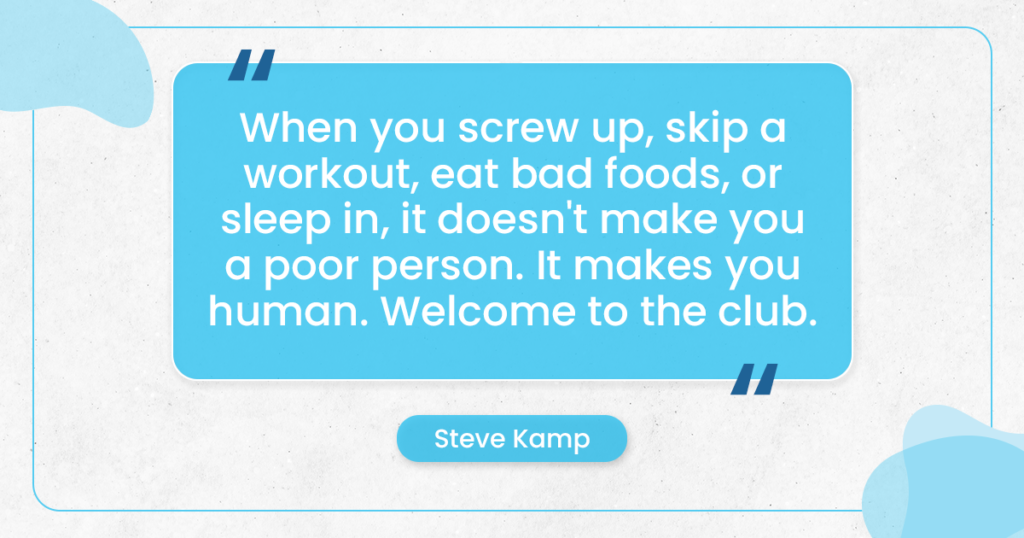
5. Make a serious plan.
Planning is better than telling orally yourself the goal. Make a plan on paper. That shows that you’re serious about the issue. Write down all the things which you need, your weakness, your cue, your trigger, and your routine. Telling yourself about your plan is not enough to implement accurately. You need to be accountable and methodical.
5. Know your motivations.
Be motivated, and find ways to keep your motivation high. Understand what you’re doing, how this can help you in the future, and what will look like when your free of bad habits and filled with good ones.
Your purpose must be strong enough that it keeps you motivated. Always remember your purpose and keep repeating it until it settles down in your subconscious like a mantra. Motivation is essential in these early stages to be successful.
6. Don’t start right now.
Don’t start it now. Does that surprise you?
Always write a start date in your plan. And, act on it. Take time to plan everything, such as the obstacles, goals, triggers, and urges. Or use a counselor to help you plan who’s a professional in the area.
Plan all the pros and cons of everything. Mention a start and end date in your plan. If you don’t do this, you may forget about it and act without structure and lose your way.
7. Write all your obstacles.
Write down all the difficulties which you face while quitting a habit. Every obstacle must be written down to tackle while facing it. Write down all the possible solutions to the challenges which you might face. \
Write down every solution to your obstacles because, at that time, when you face it, you won’t have enough time to search for the answer to the barrier. You’ll need quick solutions; that’s what the plan is for.
8. Know your triggers.
Make sure to know what triggers force you to do bad things because that’s how you fight your bad habits. When something gives you a trigger, you know then how to handle it with your plan..
A cue is the first stage that brings you down, and you crave your addictive habit. So, be ready for cues.
9. For every trigger, make a positive habit.
When your old habits trigger you in some way, do something at that time to avoid it. Do a good practice instead. There are two benefits to making a good habit when something triggers you. You can forget the urges and you can do a good routine instead. Then, your new habit becomes stronger.
10. Make a support system of skills and people.
Don’t underestimate the power of the support system. When you feel alone and frustrated, who will help you? Always keep this in your plan.
You can use music or install a meditation app that helps you in your journey. You can also write an article, post it, or call your friends and family.
11. Ask for help.
Asking for help is vital. There’s no shame in asking for help when you need it. You have to seek some specialists in that field and ask for counseling or assistance, just someone to talk to can be enough.
Because a specialist can better understand your feelings and emotions, they know how to react in that kind of situation. Tell them your problem on the call and write down their advice, they listen with you and give the best advice.
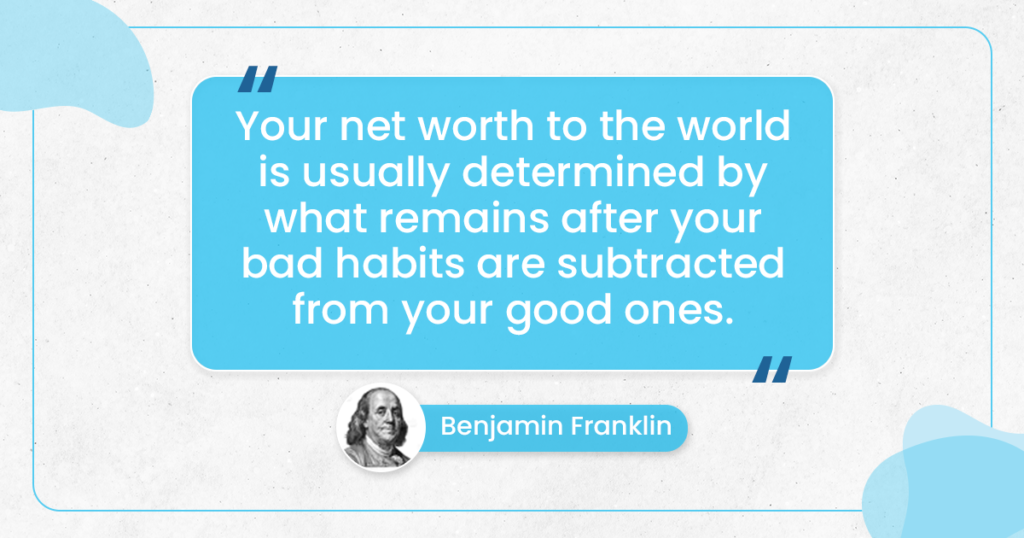
12. Become aware of self-talk.
We always talk to ourselves subconsciously. Be aware of your self-talk. Start thinking about your thoughts and see deeply what’s going on in your mind. Talk positive such as “I can do this” no matter what, no matter how hard the situation is. “I can do this.” You can also use positive affirmations that give you positive ideas about yourself and your mission to change.
13. Stay hopeful.
Everybody knows that staying positive feeds your mind. If you experience something bad, taking a lesson from the bad experience can motivate and change your mind.
You can do everything you set your mind to. But, it’s all about perspective. “If someone else can do this, I can also do this.” If you see in your community people getting better and changing their lives, you can get inspiration from them and change your life too.
14. Have a plan to defeat urges.
Make a proper plan to deal with urges. It is the most challenging phase while quitting a habit. You feel demotivated and weak in front of cravings. It makes you freak out and pushes you away from your goal. They’re unavoidable, but they’re also quick and beatable.
You can deal with it by deep breathing, self-massage, eating some grapes, going for a walk, exercising, drinking water, or calling a friend. Whatever works for you. The period of urges is small. So, make sure your patience is more potent than your urges.
15. Prepare for the sabotagers.
Stay away from negative people because they don’t want you to be successful and don’t want others to change. They are the people who always talk negatively about everything and every situation; they want to stay the same. Don’t even pay attention to what how they live their life or their advice.
16. Talk yourself up.
Talking to yourself is simply a kind of affirmation. Keep up with positive self-talk. And, give yourself the courage to do anything. Tell yourself uplifting things all the time. “I have enough courage to tackle my situations. It makes me stronger from the inside.”
Often, our minds think negatively because our environment is hostile, but, make sure to talk to yourself positively and stay away from negativity while you’re healing.
17. Apply a purposeful mantra.
This is different for everyone. You can create your own mantra and repeat it. It works differently for people. This is something like “I am brave,” “I have courage,” and “My challenges will make a better me.” It depends upon you, what you need, and how you want to create your mantra according to your situation.
18. Use visualization.
Visualize your future self as extremely powerful in creating good habits. Visualize that you’re doing your best according to your plan, and it helps. Thinking about yourself achieving your goal and seeing yourself in the future uses the power of the imagination. See yourself as successful. If you can’t visualize something, you may be unable to do it.
19. Use rewards.
Rewarding yourself makes your habit stronger, no matter whether your habit is good or bad. If you do something addictive, you feel good; your mind releases a chemical (Dopamine) that gives you pleasure. There is a lot more pleasure in bad things; that is why our minds do bad things.
When you make a good habit, how can you use this reward system in your routine? For example, if you achieve your good habit all day long, you can give yourself a simple reward. This can be a chocolate, a leather jacket for yourself, or watching an entertaining video on YouTube, which provides you with a kick. You can apply this to make your new habit stronger.
20. Get rest.
Resting for a while is healthier for your recovery from bad habits. The struggle makes you tired and drained sometimes. So, make sure to keep up with rest. Enough rest is essential for you to compete with your addictive habits.
21. Renew your commitment.
Always renew your commitment two times a day. Put your plan on the wall to see your goal when you enter the room. This gives you a continuous reminder, and it moves you toward your goal. Read your commitment and speak it aloud.
This ensures you do not forget about your goal. You can remind yourself not to forget and keep repeating it until it settles down in your mind naturally.
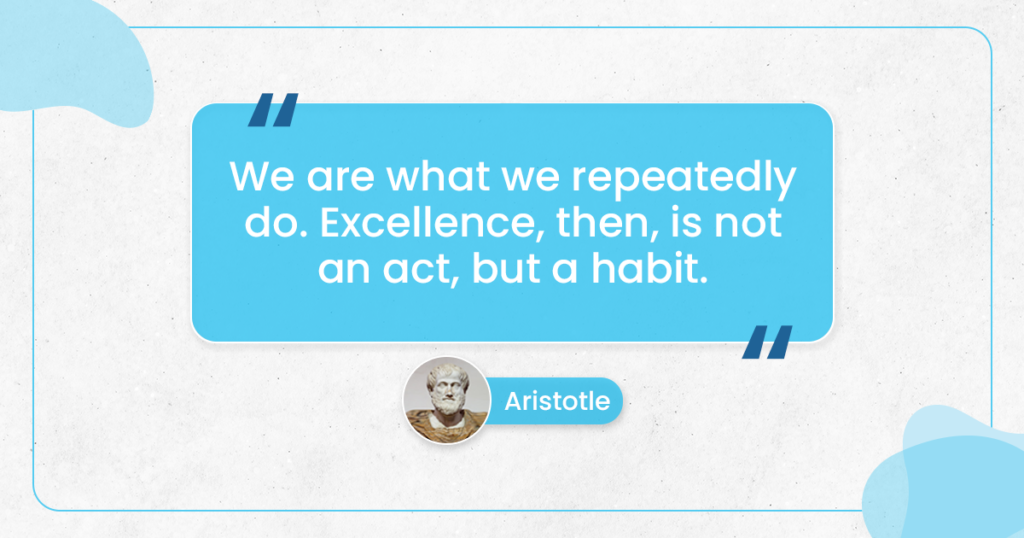
22. Make it public.
Commit publicly, and share your progress with the people that are attached to you. Share it on social media; it also motivates others to make changes if they find it interesting. It also encourages you to still keep on going as a reward with positive attention. Share it with your friends and family.
You can share memories of your journey on social media, so why not share your report about the habit. Share your views about how you feel now when you quit your bad habits. How different do you feel now, and how do you enjoy your life? How beautiful is the experience?
23. Avoid “bad habit” situations.
Avoid those situations that trigger old habits; for example, in a place where you smoked previously, don’t go to that place where you have memories of your bad habit. Go to some different places, and check out some more places where you feel comfortable and hanging with new people. This could be a wonderful, new experience for you.
Make sure to avoid those friends, places, and bars where you often went in the old days. Instead, try something new, make new friends, join a new club, or join a course where you meet new people. Connect with nature. Do whatever you can to make life new and fresh.
24. Plan for failure.
Failure is natural. It is normal to fail while trying something new. When you fail badly in your first attempt while changing your habits, don’t be demotivated. Stand up and make a new plan, figure out your weaknesses in your previous plan, and try again and again until you succeed. If someone gives a stand to change their life, it can happen one day.
25. Get help from The Haven Detox.
You can get help from The Haven Detox; if you find yourself in some kind of addictive addiction such as drugs and alcohol, you can get help, counseling, and seek the treatment as well.
Clients successfully manage a new life without complicated substance use through our detox, residential treatment, and aftercare. Contact us at (561) 328–8627 when you’re ready to take the next step.


